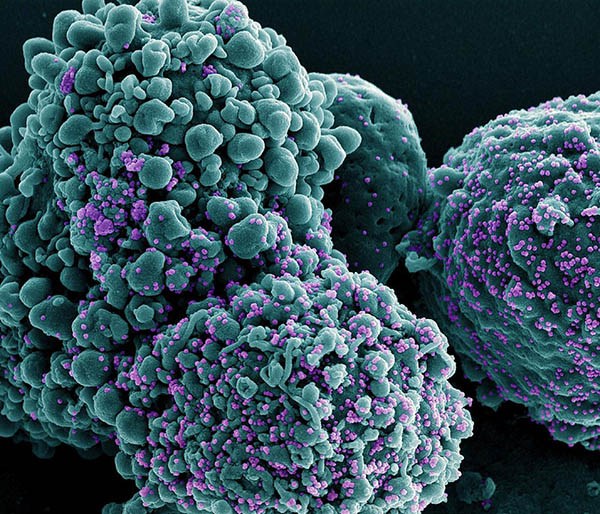Findings suggest COVID-19 rebound not caused by impaired immune response
Detailed analysis of eight patients published
Findings from a small study of eight patients published in Clinical Infectious Diseases suggest that COVID-19 rebound is likely not caused by impaired immune responses. The study, led by scientists at the National Institute of Allergy and Infectious Diseases (NIAID), part of the National Institutes of Health, aimed to define the clinical course and the immunologic and virologic characteristics of COVID-19 rebound in patients who have taken nirmatrelvir/ritonavir (Paxlovid), an antiviral therapeutic developed by Pfizer, Inc. COVID-19 rebound is characterized by a recurrence of COVID-19 symptoms and/or a new positive viral test after having tested negative, according to the Centers for Disease Control and Prevention. According to the study authors, the results do not support the hypothesis that the five-day course of Paxlovid is too short for the body to develop a strong immune response to SARS-CoV-2, the virus that causes COVID-19.
Participants were selected from adults enrolled in an ongoing COVID-19 study at the NIH Clinical Center in Bethesda, Maryland, and other local hospitals. The study aims to better understand how SARS-CoV-2 affects white blood cells. Participants provide blood and other samples as well as access to their COVID-19 medical records as part of the study. The study to evaluate COVID-19 rebound included six participants (three men and three women with a median age of 42 years) who took Paxlovid within four days of initial symptom onset and then experienced recurrent symptoms; two participants (a 54-year-old man and 35-year-old woman) who experienced recurrent symptoms who did not take Paxlovid; and a control group of six people who had COVID-19 but did not experience symptom rebound. All participants were previously vaccinated and boosted against COVID-19, and none developed severe disease requiring hospitalization during acute infection or rebound. Investigators collected data on each participant’s clinical course and performed laboratory tests on blood and nasal swab samples.
Investigators found no evidence of genetic mutations that would suggest participants who experienced COVID-19 rebound were infected with a strain of SARS-CoV-2 that was resistant to Paxlovid. They also found no evidence of delayed development of antibodies in participants experiencing rebound after taking Paxlovid. Investigators detected robust SARS-CoV-2 T-cell responses in rebound patients. Overall, the level of T-cell responses was greater in rebound patients than in patients with early acute COVID-19 who did not experience rebound. Infectious SARS-CoV-2 was detected by viral culture in one out of eight rebound participants.

Colorized scanning electron micrograph of a cell infected with the Omicron strain of SARS-CoV-2 virus particles (purple), isolated from a patient sample.
This page was last updated on Tuesday, October 11, 2022